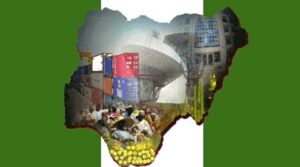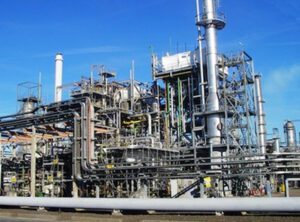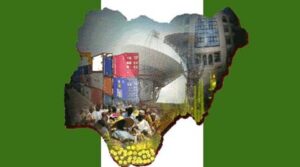Nigeria’s growing food prices inflation: Risk of National chaos & anarchy
Nigeria is apparently roving round the brink of food crisis. The huge deficits in food production – a reflection of turbulent strains bewildering the agriculture sector, recently, have posed records of negativities in the profile of food prices with scarcity and its attendant high inflation. The Food Prices Watch Report for July 2022 released on Monday, 21st August, 2022, by the National Bureau of Statistics (NBS), are embodied with reflections of crises in food availability and accessibility in the Country. With rising records of inflation in the prices of selected food items increase in July, 2022, the NBS report shows that the average price of 1kg of white beans rose by 23.22 per cent from N444.21 in July 2021 to N547.38 in July 2022. On a month-on-month basis, the price increased by 2.09 per cent from N536.17 in June 2022 to N547.38 in July 2022. The report stated also that the average price of 1kg of tomatoes increased on a year-on-year basis by 7.71 per cent from N414.83 in July 2021 to N446.81 in July 2022.
Average price of 1kg beef (boneless) in July 2022 was N2,118.84, an increase of 27.58 per cent from the N1,660.76 recorded in July 2021. The NBS also stated that average price of a bottle of groundnut oil stood at N1,078.17 in July 2022, showing an increase of 40.24 per cent from N768.81 in July 2021. It added that the average price of 1kg of local rice increased on a year-on-year basis by 13.55 per cent from N411.97 in July 2021 to N467.80 in July 2022. The average price of one bottle of palm oil stood at N890.67 in July 2022, showing an increase of 40.19 per cent from the N635.31 recorded in July 2021.
State-by-State analysis showed that Ebonyi recorded the highest average price of 1kg of white beans in July 2022 at N900.51, while the lowest price was recorded in Borno at N317.73. The report stated that the highest average price of 1kg of tomato was recorded in Edo at N799.16, while the lowest was recorded in Taraba at N159.14. Similarly, Rivers recorded the highest price of 1kg of local rice at N619.62, while the lowest was recorded in Jigawa at N363.34.
Analysis by zones showed that the Southeast recorded the highest average price of brown beans at N853.19 per kilogramme, followed by the Southwest at N598.00, while the Northeast recorded the least at N379.03. The Southeast recorded the highest average price of tomato at N678.80, per kilogramme, followed by the Northwest at N656.93, while the lowest was recorded in the Northeast at N194.72. The NBS stated that the average price of 1kg of local rice in the Northwest was N796.03, representing the highest recorded in July 2022, followed by the Southwest at N519.64. The North Central recorded the lowest price for 1kg of local rice at N401.72, it stated.
The above statistics in quick perception do not reflect positivity on food availability, accessibility and sufficiency for sustainability, required for an healthy population. The records are clear reflections of strains which have their roots in destabilising forces such as insecurity, devaluation of the Naira and the strains of Forex, among other socio-economic challenges.
It is indisputable that the Government has to wake up to the demands of the realities with interventions which are foremost needed to address the challenges. Some of these have clustered together reflecting hydra-headed strings, hence, the necessities before the Government are those of emergencies, key to avoid an explosion of turbulence which may brew out of the deficiencies.
The troubles of food crisis are beginning to take their reflections, particularly as more citizens are continually finding it difficult to have access to food which remains a focal necessity among basic needs. The turn of many to dehumanising settlements to get access to food poses threats to the well being of the society. The eroding purchasing power of the people associated with inflation and the devaluation of currency, have left tingling resonance on the ears of the masses and sour taste with the majority.
Special interventions from strategic and intelligence-based responses to tackle insecurity challenges which have left narratives of desertion of farm settlements at the front of wobbling challenges of food crisis; to the stretch of critical policy interventions to moisturise the environment for agriculture; up to macro economic policies essentially at the fore front of fiscal and monetary frameworks to recondition the state of the Nigeria’s economy are sine qua non. The Country might be sitting on a ticking bomb if, by and large, she dwells too long at the brink of food crisis which may create the ambience for national chaos and anarchy. The traces of red signals are evident as more people are increasingly resorting to indulging in illegitimate venture for survival. The macroscopic impacts are threats against peace and order. To avert a deep seated stronghold of criminal exchanges and social delinquencies which may result from turning to criminalities for survival instinct, the necessity to rise to addressing the casual factors of the conditions, premising food crisis in the Country must be taken with the force of immediacy.




